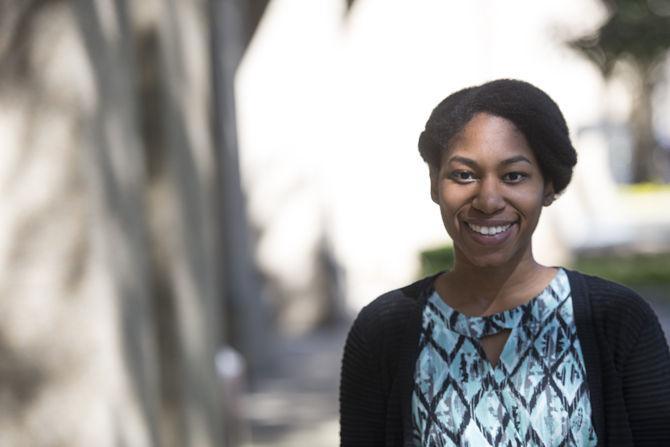Kimberlye Dean, a clinical psychology graduate student, wants to change the conversation surrounding mental health in the black student community.
Dean is entering the second month of her 10-month master’s thesis project, which is surveying black undergraduates in southern Louisiana. The survey focuses on issues of mental health and socio-cultural factors that may impact a student’s willingness to seek treatment from mental health professionals, Dean said.
The thesis’ main focus is the connection between intolerance of uncertainty, defined as a fear of uncertain situations, and willingness to seek treatment. Intolerance of uncertainty is a transdiagnostic risk factor, a variable that affects students with depression, social anxiety and panic disorders, among others.
While intolerance of uncertainty affects many people, Dean noticed black communities are especially wary of seeking medical and psychological treatment. This may stem from stigmas surrounding mental illness and the discussion of mental illness in black communities, she said.
Black individuals may also seek treatment from alternative sources, including clergymen, family and friends, she said. This reflects the desire to keep taboo topics within the community and the fear of stepping outside the community to address mental health concerns, she said.
Associate psychology professor Julia Buckner said individuals who fear the mental health system may have experienced discrimination in other areas and fear similar discrimination from mental health specialists.
Making inroads can be difficult because little psychological data exists specifically for black communities, she said.
“Most psychological research has been done predominantly with whites,” Buckner said. “We still don’t understand mental health and mental health related problems among black individuals as well as we do white individuals.”
Dean’s survey could be a good first step for incorporating the black community into mental health outreach efforts, Dean said. The University does a good job of promoting its mental health services, but more needs to be done to address the needs and improve retention rates among black students, she said.
Mental health concerns and mental illnesses are important considerations in a student’s performance, she said.
“If this is a problem a lot of students are dealing with, it can definitely impact their schooling, their well-being and their quality of life overall,” Dean said.
Leaving anxiety and depression symptoms untreated can interfere with a student’s confidence in class and negatively affect performance. Mental health concerns have led students to fail classes and have contributed to students’ decisions to drop out of school, Buckner said.
If the survey results confirm Dean’s hypothesis, she and Buckner plan to use the information to improve mental health services on campus and extend outreach to black students. Ensuring students are aware of the services the University provides and feel safe utilizing those services is important, Dean said.
Another component is limiting feelings of discrimination that may contribute to anxiety or distrust of the mental health care system, Buckner said.
“We want to better educate students about the fact that mental health professionals strive to minimize discrimination,” she said. “One of our goals is cultural confidence and creating an environment that’s welcoming for individuals regardless of race, ethnicity, sexual orientation or background.”
Graduate student studies mental health treatment issues within black community
March 2, 2016
Clinical Psychology grad student Kimberlye Dean stands in her office Wednesday, March 2, 2016 in Audubon Hall. She’s conduction a survey to assess how intolerance of uncertainty impacts black students willingness to seek mental health services.
More to Discover







